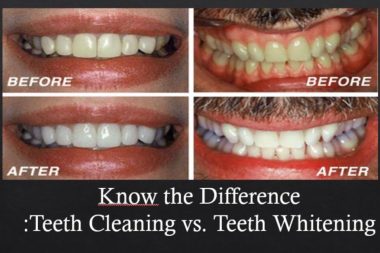Prostate surgery is a common procedure for men with prostate cancer or other issues related to their prostate. Unfortunately, the surgery can lead to erectile dysfunction (ED) due to nerve damage that occurs during the operation. How long does this ED last? It depends on a few factors, and in this blog post, we’ll explore those factors and how long erectile dysfunction may last after prostate surgery.
What is erectile dysfunction?
Erectile dysfunction (ED) is the inability to get or keep an erection firm enough for sexual intercourse. It can happen at any age, but it becomes more common as men get older.
There are several things that can cause ED, including:
-Physical problems, such as a heart condition or diabetes
-Psychological problems, such as anxiety or depression
-Certain medications
-Smoking
-Alcoholism
-Injury to the penis or spinal cord
-Peyronie’s disease (a curvature of the penis)
If you have ED, you may not be able to get an erection at all. Or, you may lose the ability to get an erection during sex. Either way, it can be frustrating and even embarrassing. But there are treatments available.
Your doctor can prescribe medication that will help you get erections again. There are also other treatments, such as penile implants and pumps. These options may be recommended if other treatments don’t work.

Causes of erectile dysfunction
Erectile dysfunction (ED) is a common side effect of prostate surgery. The exact cause of ED after prostate surgery is not known, but it is thought to be due to injury to the nerves and blood vessels that control erections.
Most men will experience some degree of ED after prostate surgery, but the good news is that it is often temporary. In fact, about 50% of men who have radical prostatectomy (RP) are able to achieve erections sufficient for intercourse within one year of surgery.
There are several things you can do to improve your chances of maintaining erectile function after prostate surgery:
-See your doctor for regular checkups and follow their recommendations for treatment of any underlying health conditions.
-Maintain a healthy lifestyle by eating a balanced diet, exercising regularly, and avoiding tobacco and excessive alcohol use.
-Talk to your partner about your concerns and keep an open line of communication. This can help reduce anxiety and improve your relationship.
If you are still experiencing ED after one year, there are a number of effective treatment options available. These include oral medications, injections, vacuum devices, and surgery. Your doctor can help you choose the best option for you based on your individual situation.
Prostate surgery and erectile dysfunction
Erectile dysfunction (ED) is a common condition that can be caused by a variety of factors. One of the most common causes of ED is prostate surgery. Prostate surgery can damage the nerves and blood vessels that are responsible for erections. This can lead to ED or make it worse if you already have ED.
There are several options for treating ED after prostate surgery. These include oral medications, injections, vacuum devices, and surgery. Your doctor will work with you to find the best treatment for your individual needs.
In most cases, ED is not a permanent condition and will improve over time. However, some men may experience long-term or even permanent ED after prostate surgery. If you are concerned about your sexual function after prostate surgery, talk to your doctor.
How long does erectile dysfunction last after prostate surgery?
Erectile dysfunction (ED) is a common complication after prostate surgery. While the exact incidence varies depending on the surgical approach used, overall, about 50-60% of men will experience ED after surgery. The good news is that for most men, this is a temporary problem.
That said, the duration of ED after surgery can vary greatly from man to man. In general, younger men tend to recover more quickly than older men. Men who have less extensive surgery (for example, those who have a nerve-sparing procedure) also tend to recover more quickly. In general, it takes most men about 6-12 months to recover full erectile function.
There are a number of treatments available that can help speed up the recovery process and improve erectile function. These include oral medications such as sildenafil (Viagra), tadalafil (Cialis), and vardenafil (Levitra). These medications work by increasing blood flow to the penis, making it easier to get and maintain an erection. Other treatment options include penile injections and vacuum devices.
If you are having problems with ED after prostate surgery, talk to your doctor about treatment options. With proper treatment, most men will eventually regain full erectile function.
Treatments for erectile dysfunction
Erectile dysfunction (ED) is a common side effect of prostate surgery. The good news is that there are treatments available that can help you regain your erections.
One treatment option is oral medication. PDE5 inhibitors, such as sildenafil (Viagra), vardenafil (Levitra), and tadalafil (Cialis), can help you get and maintain erections. These medications work by relaxing the muscles in your penis, which allows blood to flow into your penis and cause an erection.
Another treatment option is penile injections. Alprostadil (Caverject Impulse, Edex) is injected into the side of your penis. This medication works by increasing blood flow to your penis, which helps you achieve and maintain an erection.
If oral medication or penile injections don’t work, or if you’re not a candidate for these treatments, another option is penile implants. Penile implants are devices that are surgically implanted into the shaft of your penis. They allow you to have an erection by manually pumping fluid from the implant into the cylinders in your penis.
No matter what treatment option you choose, it’s important to talk to your doctor about your expectations and concerns. With proper treatment, most men with ED can experience improvement in their erections.
Symptoms of Erectile Dysfunction
Erectile dysfunction (ED) is a common side effect of prostate surgery. The nerves and blood vessels that are necessary for an erection are often damaged during the surgery. This can lead to ED, which can be a short-term or long-term problem.
There are several symptoms of ED, including:
• Difficulty getting an erection
• Difficulty maintaining an erection
• Reduced sexual desire
• Erections that are not as firm as they used to be
If you have any of these symptoms, it’s important to talk to your doctor. They can help you manage your ED and improve your quality of life.
Prostate Surgery and Erectile Dysfunction
Erectile dysfunction (ED) is a common side effect of prostate surgery. While the exact incidence varies depending on the type of surgery performed, it is estimated that ED occurs in 40-60% of men who have radical prostatectomy and in 20-30% of men who have transurethral resection of the prostate (TURP). The good news is that ED is usually temporary, and most men will recover erectile function within one to two years after surgery.
There are a number of factors that can influence the development of ED after prostate surgery. The type of surgery performed, the experience of the surgeon, and the patient’s overall health are all important considerations. In addition, nerve sparing techniques may be used during some types of surgery in an attempt to reduce the risk of ED.
If you develop ED after prostate surgery, there are a number of treatment options available. Oral medications such as sildenafil (Viagra), tadalafil (Cialis), and vardenafil (Levitra) are often effective in restoring erectile function. These medications work by increasing blood flow to the penis, which allows for an erection when sexual stimulation occurs.
In some cases, penile injections may be necessary to achieve an erection. This involves injecting a medication into the side of the penis just before sexual activity. The medication causes the blood vessels to dilate, which increases blood flow to the penis and leads to an erection.
Finally, penile implants may be used to treat ED that does not respond to other treatments. This involves surgically placing a device inside the penis that allows for an erection when desired. It is important to note that penile implants are a permanent solution and should be considered only after all other treatment options have been exhausted.
No matter what type of treatment you choose, it is important to talk with your doctor about all of your options and decide on the one that is right for you.
Recovery Time After Prostate Surgery
While there is no one-size-fits-all answer to this question, the average recovery time after prostate surgery is around 3 to 6 months. During this time, you may experience some temporary erectile dysfunction (ED). However, many men find that their ED improves over time and may even go away completely. If you are still experiencing ED after 6 months, you may want to talk to your doctor about treatment options.
You may also experience some urinary incontinence after the surgery, but this should improve over time as well. Your doctor will likely give you specific instructions on how to care for yourself following the procedure and how to help facilitate your recovery.
How long does erectile dysfunction last after prostate surgery?
Erectile dysfunction (ED) is a common side effect of prostate surgery. The good news is that it is usually only temporary.
Most men will experience some degree of ED after surgery, but the severity will vary from person to person. In general, the older you are, the more likely you are to experience ED after surgery.
The vast majority of men will see their ED improve within a few months of surgery. For some men, it may take up to a year or longer. Rarely, erectile dysfunction can be permanent.
If you are having trouble getting or maintaining an erection, talk to your doctor. There are several treatment options available that can help improve your ED.

Treatment for erectile dysfunction
Erectile dysfunction is a common complication following prostate surgery. While the exact incidence varies, it is estimated that up to 70% of men who have radical prostatectomy will experience some degree of erectile dysfunction. The good news is that there are treatments available that can help.
The first line of treatment for erectile dysfunction after prostate surgery is typically oral medication. There are a number of different drugs that can be effective, including sildenafil (Viagra), tadalafil (Cialis), and vardenafil (Levitra). These medications work by increasing blood flow to the penis, which allows you to get and maintain an erection.
If oral medication doesn’t work, or if you prefer not to take medication, there are other options available. One option is a penile injection, which involves injecting a medication into the side of the penis. This medication works by causing the blood vessels in the penis to relax, which allows for increased blood flow and an erection. Another option is a urethral suppository, which is a small pellet that is inserted into the tip of the penis. This pellet dissolves and releases medication that increases blood flow to the penis and helps you achieve an erection.
If you are still having difficulty achieving an erection after trying these treatments, your doctor may recommend penile implants. This is a surgical procedure where two rods are placed inside the shaft of the penis. These rods can then be inflated with a pump, allowing you to have an erection when needed.
No matter what treatment option you and your doctor decide on, it is important to remember that erectile dysfunction after prostate surgery is often temporary. With the right treatment, most men are able to regain their sexual function and enjoy an active sex life.
Conclusion
In conclusion, erectile dysfunction after prostate surgery can be a difficult condition to manage and it is important to consider all of your options. While there are medications available that may help with this issue, it is also important to talk to your doctor about the potential causes and any lifestyle changes you could make in order to improve your symptoms. With the right treatment plan in place, you should be able to resume normal sexual activity within 6-12 months of the operation.










Leave a Reply